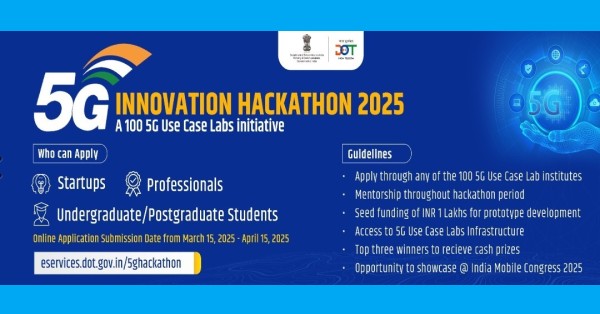Ericsson and Schiphol Launch Private 5G Pilot
Ericsson has partnered with Schiphol Airport, one of the busiest airports globally, to launch an advanced private 5G network pilot. This collaboration aims to support the airport’s ambitions under the “Airport 4.0” strategy, driving innovation, safety, and efficiency through cutting-edge technology. The project is part of Schiphol’s broader digital transformation and its mission to future-proof airport operations with robust and customized infrastructure.
Challenges Facing Schiphol Airport and the Need for Private 5G
Airports, especially major hubs like Schiphol, face several operational challenges. Aging infrastructure, increasing passenger volumes, and the demand for real-time data and automation require a modernized approach to connectivity. Schiphol has also identified the need for greater control over its communications network, as reliance on public or shared networks can limit flexibility, security, and performance. The challenge is to implement a high-speed, low-latency network that can scale and adapt to the airport’s evolving needs, including IoT integration, predictive maintenance, and enhanced security.
How Ericsson’s Private 5G Network Solves Schiphol’s Connectivity Challenges
The solution to these challenges is Ericsson’s Private 5G network, which offers secure, high-speed wireless connectivity tailored to Schiphol’s specific needs. This dedicated network provides the airport with full control over its communications infrastructure, allowing it to optimize performance and reliability. Schiphol’s dedicated spectrum, granted by the Dutch regulator, is a key enabler of this initiative, ensuring the airport’s exclusive use of 5G for critical operations.
The Ericsson Private 5G network delivers a dual-mode core, supporting both 4G and 5G in a single server. This setup is pre-integrated for rapid deployment, ensuring quick time-to-service and enhanced security by keeping sensitive data onsite. The private 5G network is ideal for high-demand applications, offering flexibility to support multiple use cases, including IoT-based monitoring, real-time safety systems, and predictive maintenance.
Early Successes: IoT and Predictive Maintenance in the 5G Pilot
Schiphol’s activation of the Ericsson Private 5G network marks the first step in exploring a variety of innovative use cases. Early implementations have focused on IoT monitoring solutions, improving real-time safety through advanced sensors, and predictive maintenance for airport equipment. This technology provides the high-speed, low-latency environment necessary for these solutions to function effectively.
The private network also aims to enhance the customer experience by enabling services like smart luggage tracking and contactless passenger processing, reducing wait times and improving efficiency. This digital transformation positions Schiphol as a leader in adopting next-generation technology to improve overall airport operations.
Why Ericsson’s 5G Technology Was the Right Choice for Schiphol
Ericsson’s Private 5G solution was selected for its adaptability, security, and enterprise-grade reliability. Built for business-critical connectivity, the solution integrates 4G and 5G seamlessly, allowing Schiphol to phase in new capabilities without disruptions. The secure architecture ensures that all sensitive airport data remains onsite, minimizing risks associated with external networks.
Furthermore, the Ericsson Private 5G network is scalable and flexible, making it suitable for a variety of airport applications, from IoT to predictive analytics, while maintaining high performance and low latency.
Key Benefits of Ericsson’s Private 5G Network for Schiphol Airport
Implementing a private 5G network provides Schiphol with several key benefits. First, it enhances security by giving the airport full control over its communications infrastructure. Second, the high-speed, low-latency network allows for the deployment of advanced IoT and automation solutions. Third, it reduces reliance on public networks, offering greater flexibility and customization to meet the airport’s specific needs. This future-proofs Schiphol’s operations, ensuring that it remains at the forefront of innovation in the aviation sector.
How Schiphol’s 5G Pilot Could Influence the Global Aviation Industry
Schiphol’s adoption of Ericsson Private 5G sets a new standard for airports worldwide. By integrating cutting-edge wireless connectivity, Schiphol is addressing the challenges of aging infrastructure and preparing for the future of air travel. This initiative demonstrates how private 5G can enhance operational efficiency, improve passenger experiences, and bolster safety and security. Other airports and industries may look to this pilot as a model for their digital transformations.
Ericsson’s Role in Leading 5G Innovation at Schiphol Airport
Ericsson is a leading player in providing private 5G networks, offering a solution that is specifically designed for business-critical environments like Schiphol. By partnering with Schiphol, Ericsson is not only delivering its advanced private network solution but also showcasing the benefits of private 5G for industries that require secure, high-performance connectivity.
Manish Tiwari, Head of Private Cellular Networks at Ericsson, emphasized the importance of the partnership: “We are proud to partner with Schiphol on this pioneering project. By leveraging Ericsson Private 5G, Schiphol is setting the stage for innovative solutions that will help them explore the full potential of 5G and the benefits it brings to airport operations.”
Schiphol’s leadership in adopting private 5G is expected to influence similar projects across the aviation industry, demonstrating the tangible benefits of next-generation network technology.
Collaborative Efforts: Schiphol and Ericsson’s 5G Partnership
The success of this project is supported by Schiphol’s collaboration with regulatory authorities in the Netherlands, who provided the dedicated 5G spectrum needed for the private network. This partnership enables Schiphol to operate with full autonomy over its communications network. Additionally, Ericsson’s role as a technology partner ensures that the network is deployed efficiently and delivers the required performance to support the airport’s transformation goals.
Current Status: Schiphol’s 5G Network Pilot in Action
The Ericsson Private 5G network pilot is currently active at Schiphol, with initial use cases being tested and refined. These include IoT-based monitoring, real-time safety enhancements, and predictive maintenance. As the pilot progresses, more innovative applications are expected to be explored, contributing to the airport’s overall digital transformation.
The project began with the launch of the private 5G pilot in October 2024. The next phase will involve expanding the network’s capabilities and exploring additional use cases in 2025 and beyond. Full-scale deployment is expected to continue over the coming years as Schiphol and Ericsson work together to optimize the system.























